
Filet Mignon vs Ribeye — Which is Best, and Why?
The examination of the two sections shows several differences in appearance. A filet mignon is primarily a fine-grained muscle, crossed by thin strips of fat, while a ribeye is greatly marbled. You can see white spots of fat on all the meat, and there will be thick strips of fat on edge and in the middle of the steak.

Ribeye vs. Filet Mignon... only a 6 dollar difference! Ribeye please
When looking at the typical ribeye vs filet mignon steak cuts, the first difference you will notice is size. A filet mignon is typically far smaller than a ribeye. There can be some variation in cuts, but the typical filet mignon is somewhere between one half to one quarter of the size of a rib eye steak. Examining the two cuts further displays.

Filet Mignon vs Ribeye Which is Best?
Filet Mignon vs. Ribeye: At a Glance. The biggest difference between filet mignon and ribeye is their marbling and flavor. Both of these cuts come from different parts of the cow. Filet mignon is smaller and lean, with little marbling, which unfortunately means less flavor. Ribeye is a much bigger steak with lots of marbling, which makes it.
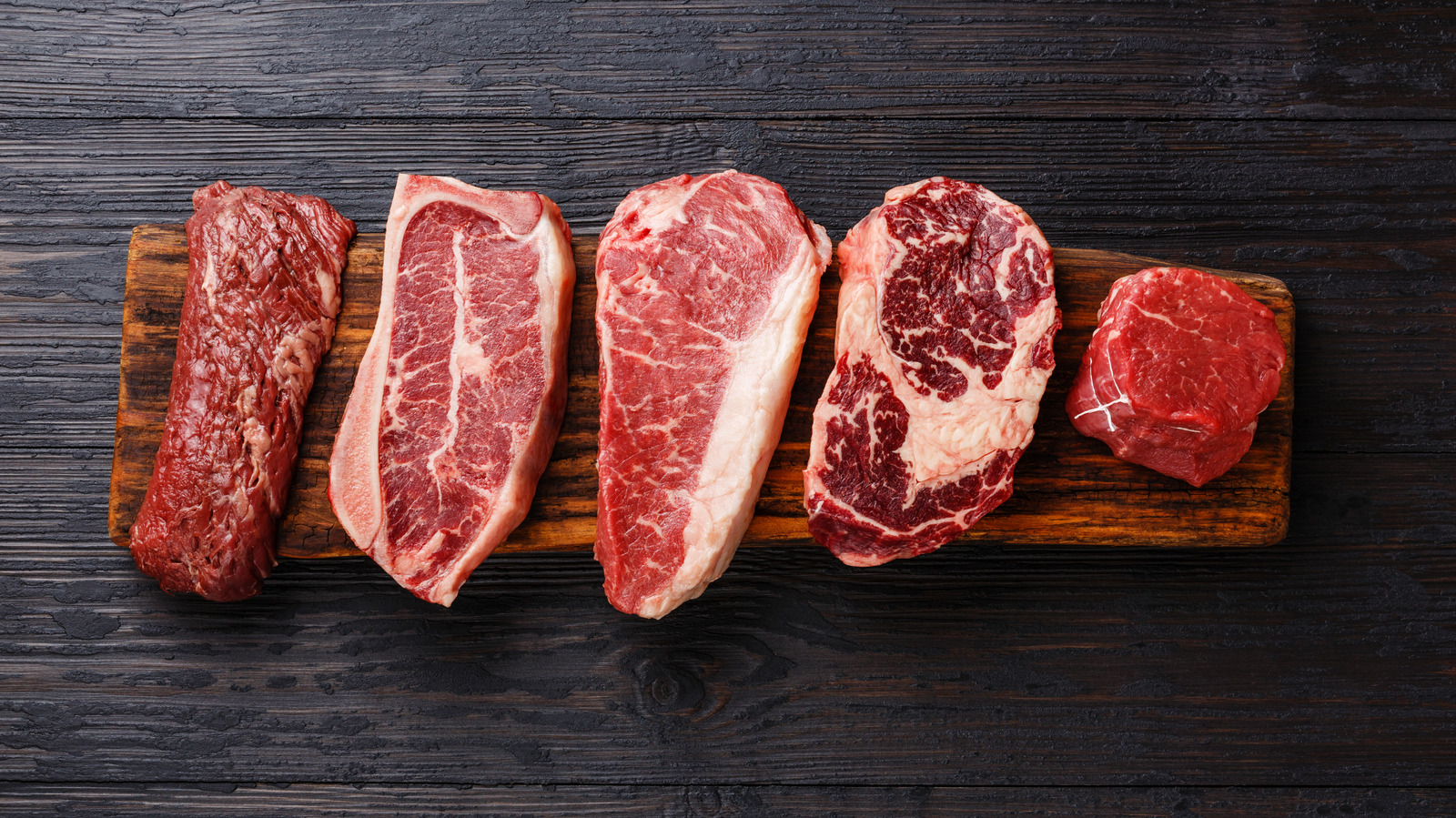
Ribeye Steak Vs. Filet Mignon Is There A Nutritional Difference?
In this comprehensive blog post, we get into the delicious battle between filet mignon and ribeye steaks. Discover the characteristics, cooking methods, flavors, and serving suggestions for each cut, helping you make an informed decision for your next steak indulgence.
:max_bytes(150000):strip_icc()/SPR_995304-cuts-of-beef-chuck-loin-rib-brisket-and-more_Tenderloin-5a8b310a3de42300377d65ab.png)
TENDERLOIN
Filet mignon has similar sodium levels to ribeye, but the former has higher cholesterol and less fat levels than the latter. Filet mignon also has 280 milligrams of potassium, is a great protein.
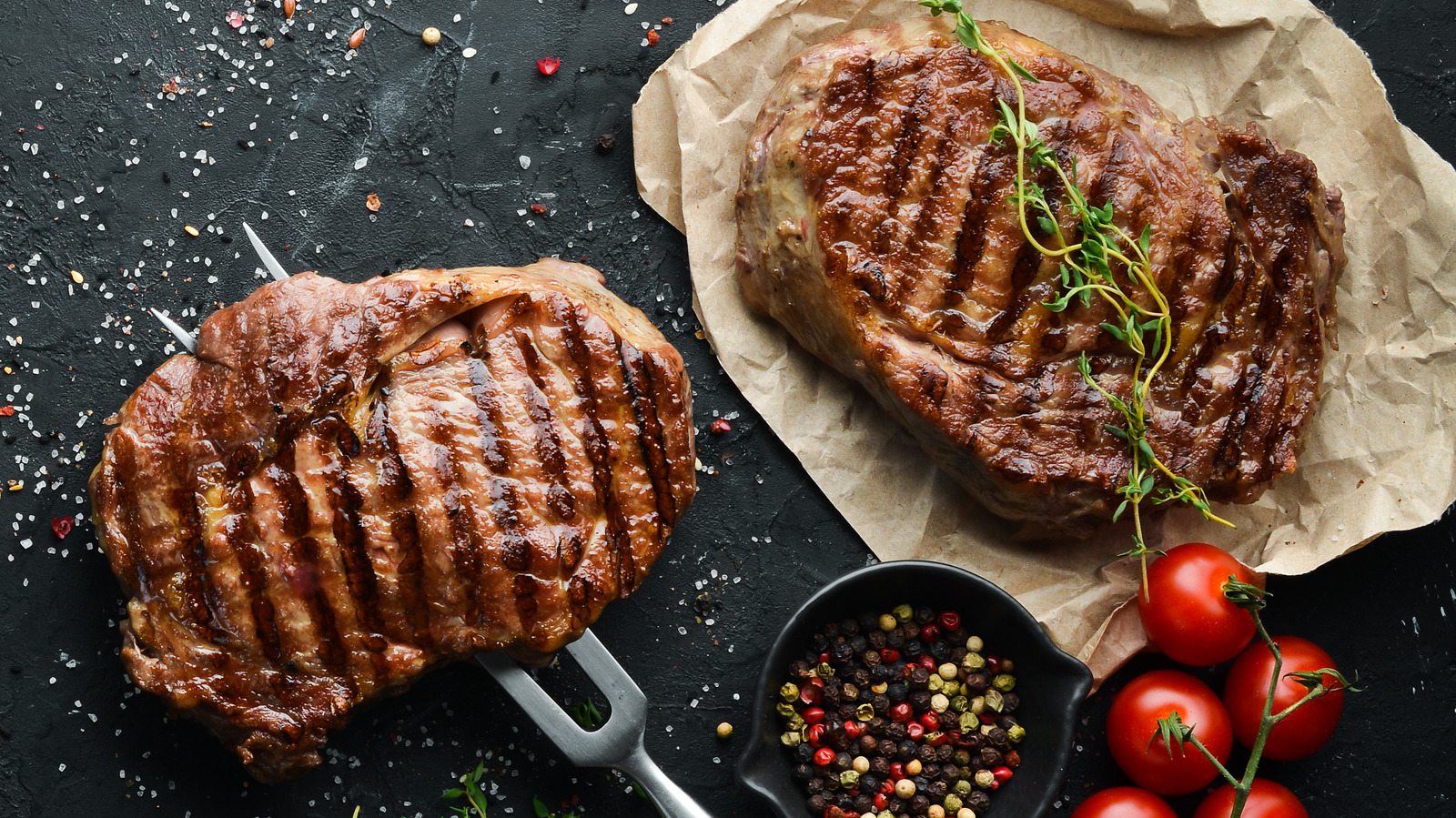
Filet Mignon Vs. Ribeye What's The Biggest Difference?
Flat Iron. The flat iron is an innovative newer steak, cut from the top blade of the chuck. It is the 2 nd most tender steak (only filet mignon is more tender) and has big, bold beefy flavor. It has fantastic marbling and a tender texture and is gaining popularity among steak enthusiasts.

Filet Mignon vs Ribeye Assaggio Blog
Going this route is a win-win as you get the most out of both meals in calories and taste! Nutrition Facts Per Serving (4 oz) Filet Mignon: 255 calories, 11 g fat, 3 g saturated fat, 34 g protein, 0 g carbohydrates. Ribeye Steak: 541 calories, 37 g fat, 14 g saturated fat, 42g protein, 0 g carbohydrates. Source: USDA.
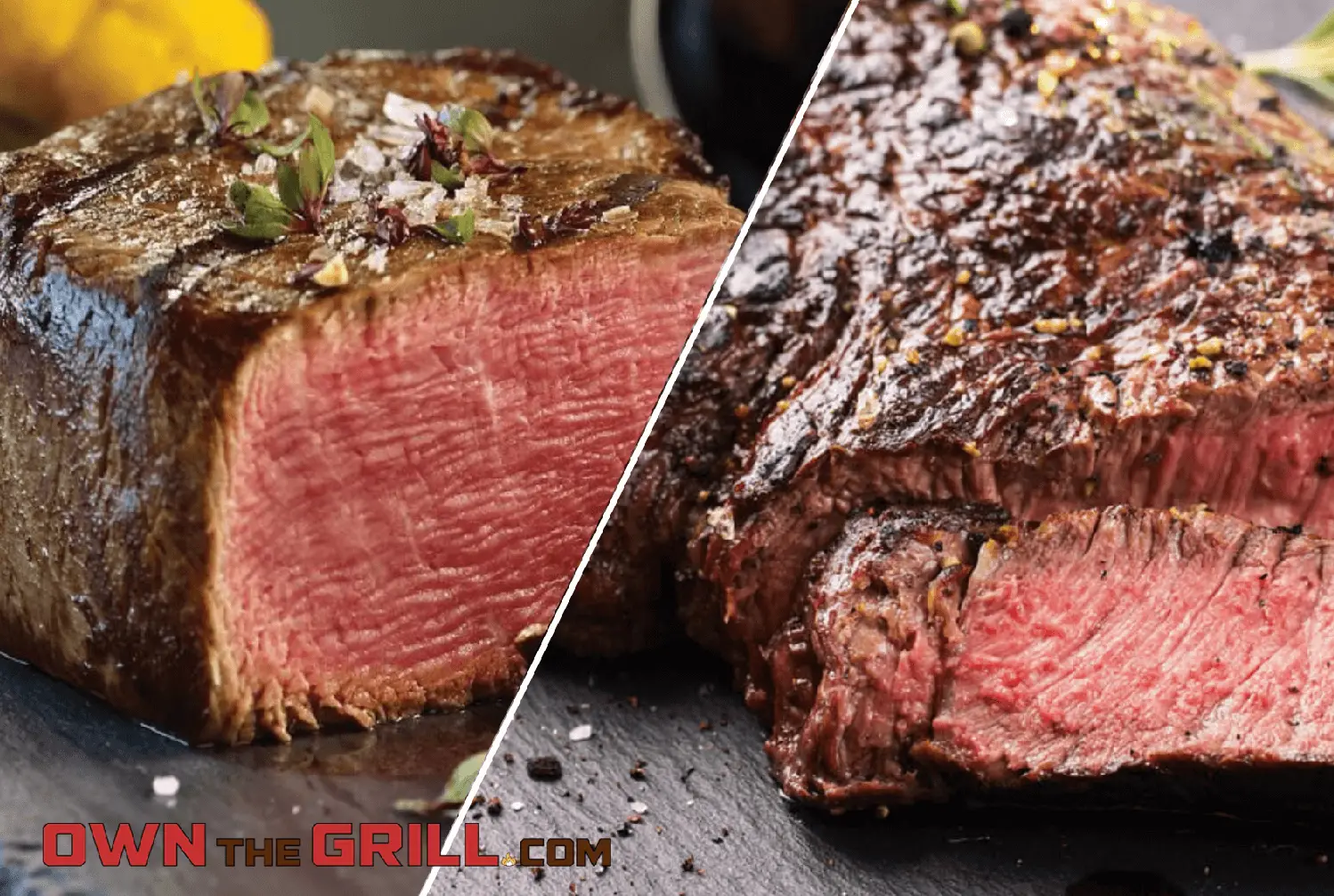
Ribeye vs Filet What's the Difference? Own The Grill
A filet mignon is usually around eight ounces in weight, while a ribeye steak might be around 10-12 ounces if boneless and somewhere around two pounds for a cowboy steak (bone-in thick-cut ribeye.) A filet mignon is the main part of a meal while a cowboy steak (pictured above) is a meal plus leftovers.

beef tenderloin steak vs filet mignon
Seeing as it comes from a muscle that gets more work, ribeye is far more marbled than filet mignon — and that means a higher fat content. One hundred grams of raw filet mignon contains 7.1 grams of total fat, while 100 grams of raw ribeye contains 10.6 grams of fat. And these numbers refer to trimmed steaks.
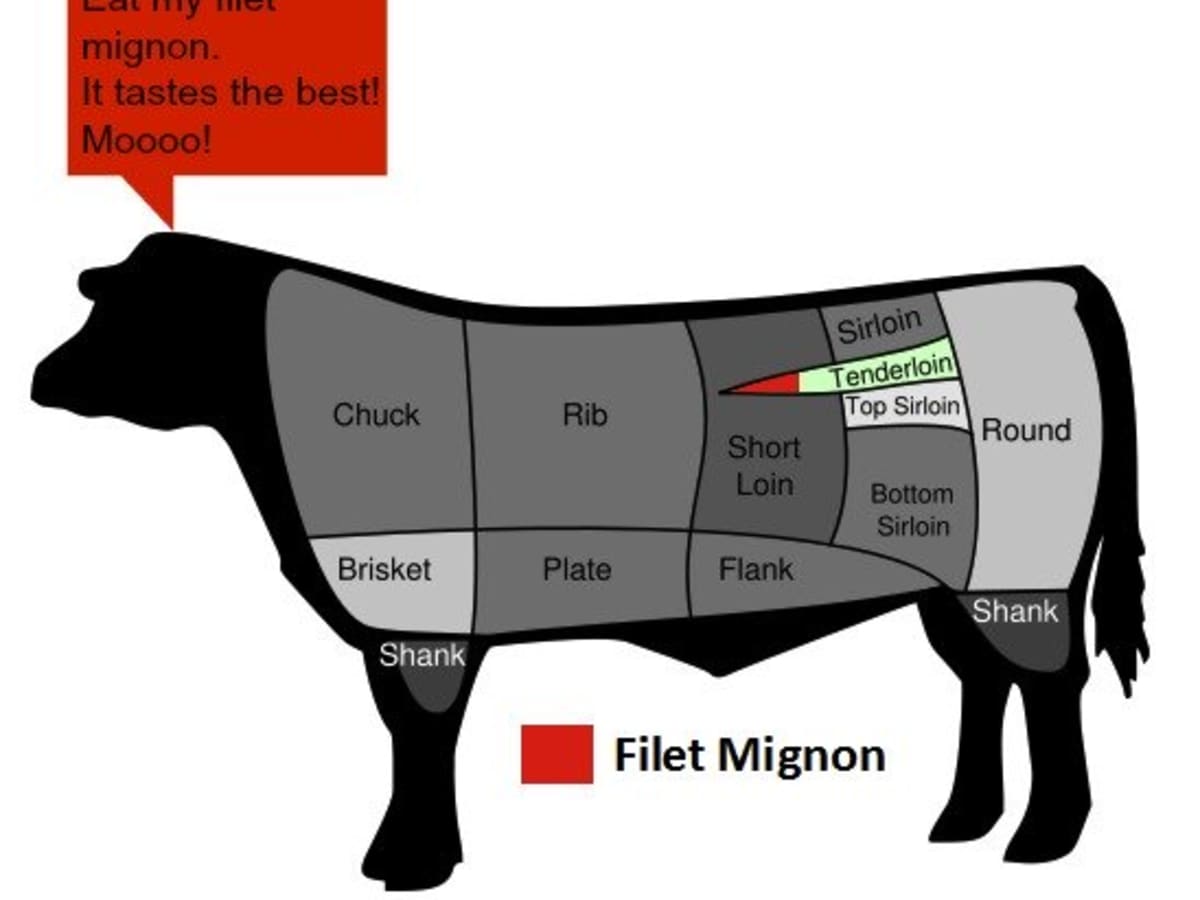
Is beef tenderloin the same as filet mignon? [2022] QAQooking.wiki
Known for its luscious marbling, ribeye is one of the best cuts of steak there is, and there's an anatomical reason for that. "The ribeye comes from the rib of the animal, which starts right around the neck and moves toward the rump, halfway on the midsection of the animal," says Flannery. "The ribeye has more internal fat, and fat is.

Filet Mignon vs Ribeye Differences in Texture, Cuts, Costs & Cooking
Filet mignon and ribeye are two of the most popular types of steak cuts. There are some subtle differences between filet mignon and ribeye when it comes to taste, texture, and tenderness.
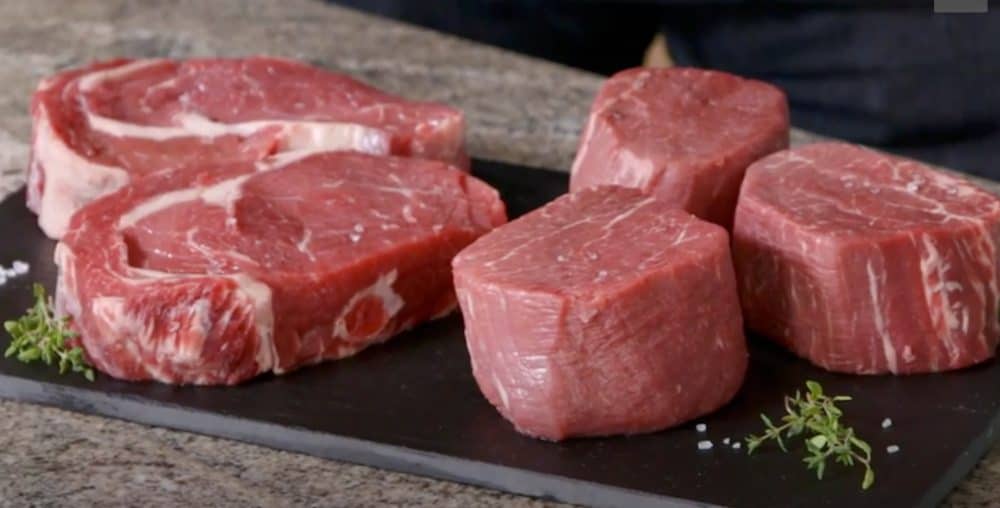
Filet Mignon vs. Ribeye The Steak Comparison Series Mad Backyard
Comparing Size, Weight, and Servings per Cut. Filet Mignon is typically smaller, about 2-3 inches in diameter, and weighing 6-8 ounces. This makes it an ideal portion for a single serving. Ribeye is a larger, heartier option, best cooked and served at a substantial thickness of 1.5 inches, and weighing 12-24 ounces.
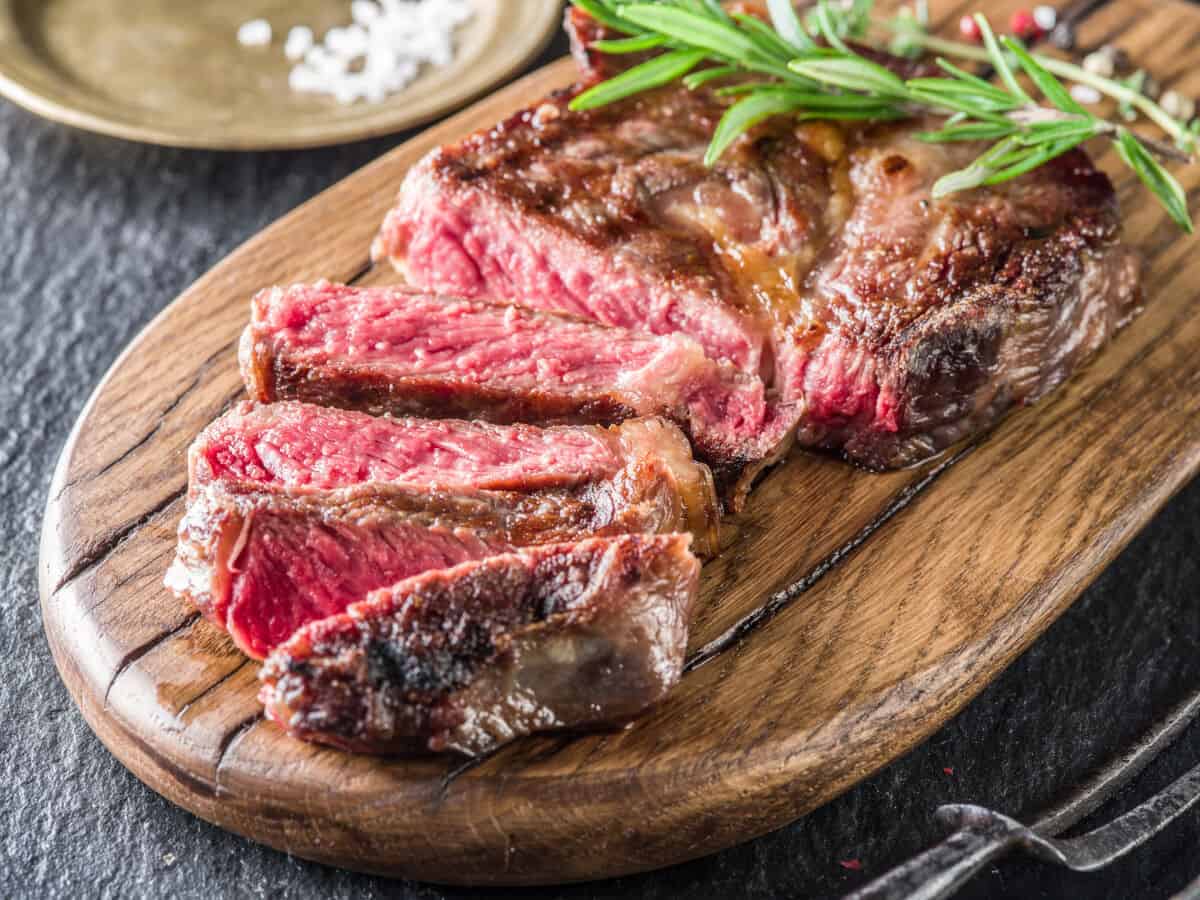
Filet Mignon vs Ribeye What’s the Difference and How to Cook Them
Also, filet mignon comes in small cuts while ribeye comes in bigger cuts. The former is also low in fat and isn't juicy, which is why it needs to be cooked in sauce, while the ribeye is juicier and is high in fat. Ribeye has a tender texture and is cooked at high temperatures, while the filet mignon is softer and can be cooked over low.
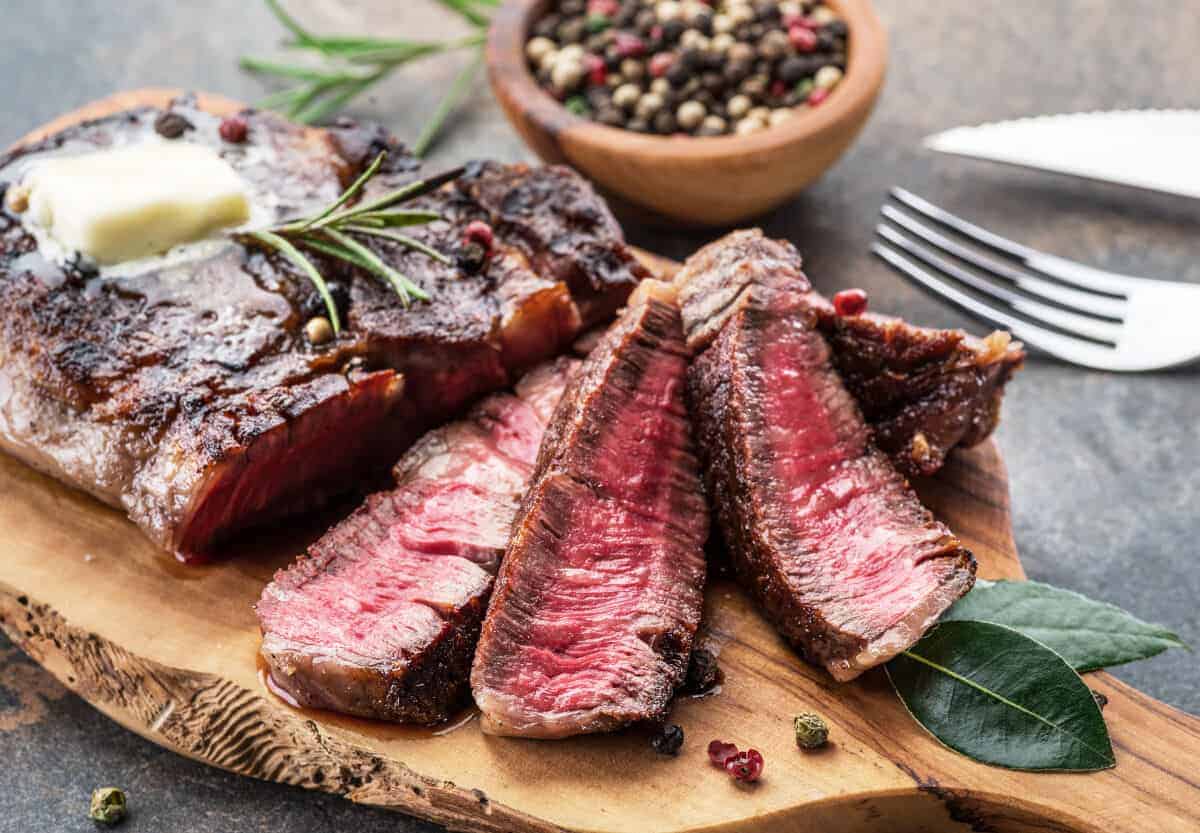
Filet Mignon vs Ribeye — Which is Best, and Why?
The second contender, ribeye, boasts more fat marbling and a chewier texture. As the marbling renders during cooking, it adds a complex flavor profile to the steak while keeping it juicy. When it comes to savoring steak, the flavor and texture are paramount. Filet mignon and ribeye offer distinctly different experiences in both aspects.
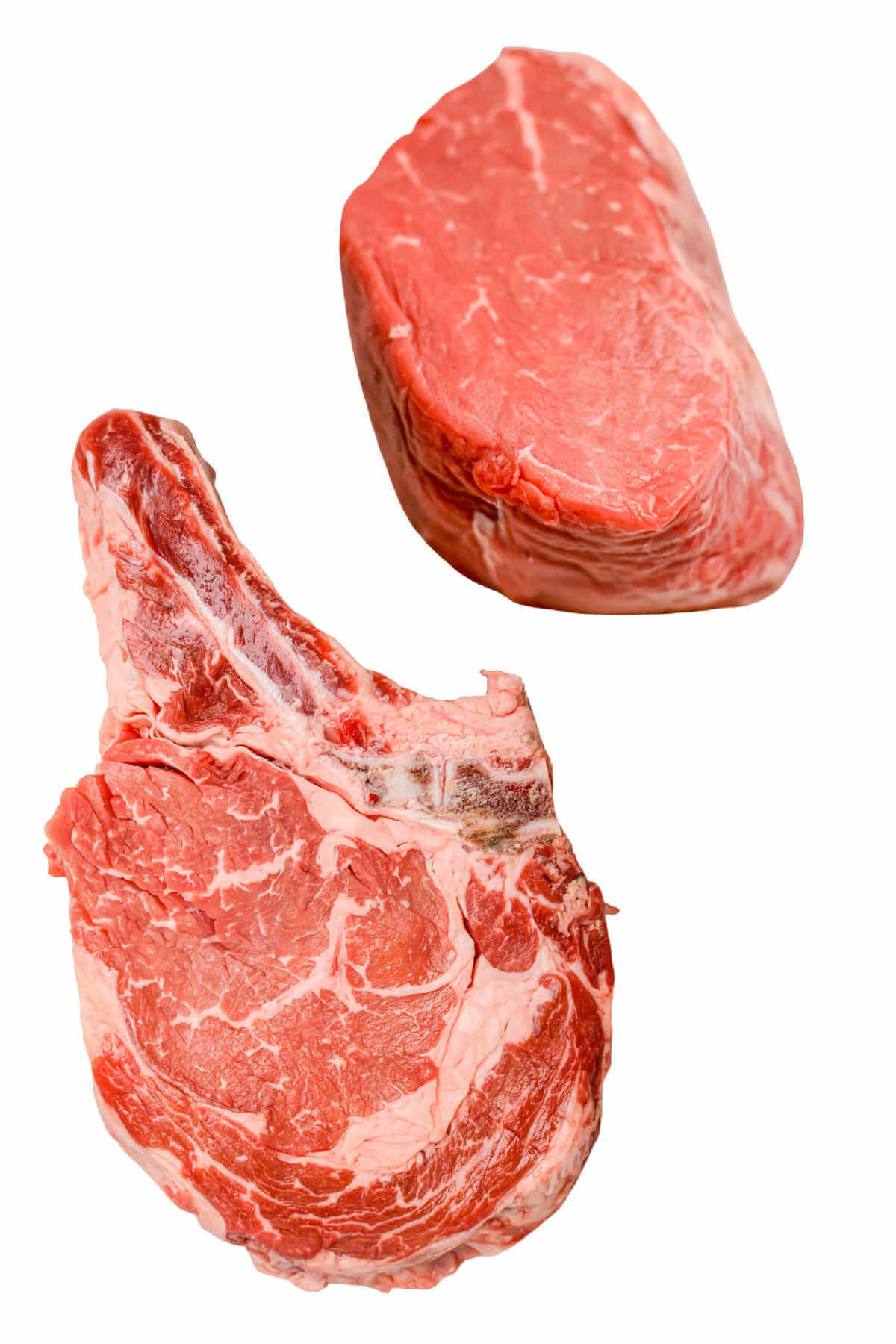
Filet Mignon vs Ribeye What's the Difference? Kitchen Laughter
Filet Mignon vs Ribeye. Filet mignon and ribeye steaks are like night and day: on different sides of the spectrum. The only similarity between these 2 steaks is that they are both tender, delicious cuts of beef. Cut . The primary difference between these 2 steak cuts is their position on the animal. Ribeye steaks originate from the cow's rib.
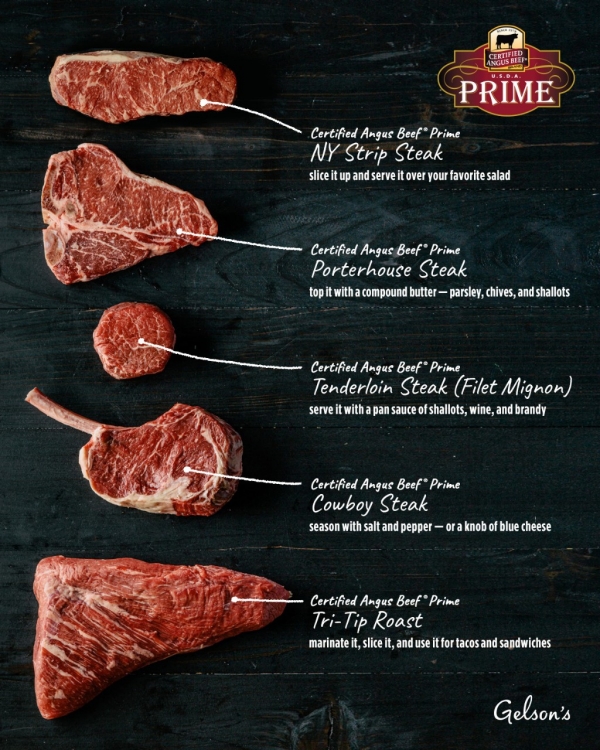
Home Cook’s Guide to Certified Angus Beef® Prime Steaks Gelson's
Comparing Costs: Filet Mignon vs Ribeye Steak. Filet mignon is one of the most expensive cuts of steak because it's one of the most coveted. Die-hard fans of this cut are willing to pay top dollar to get the tenderness you can easily cut with a fork. Plus, the average animal only has about 17 to 18 ounces of the filet mignon on them - and.